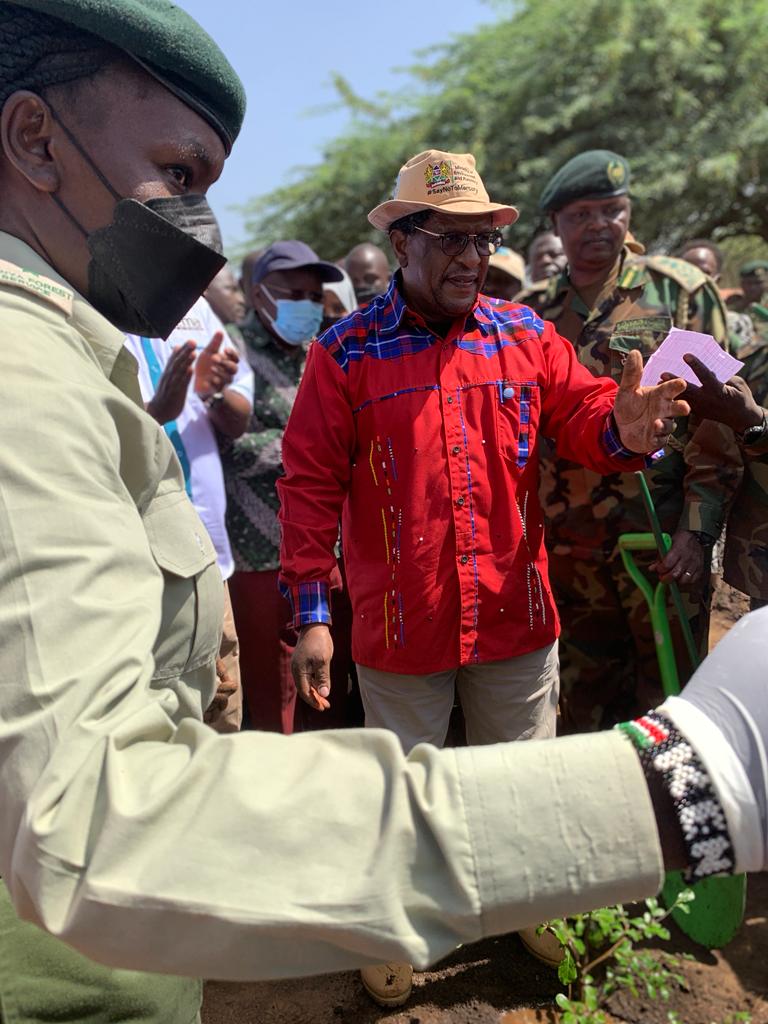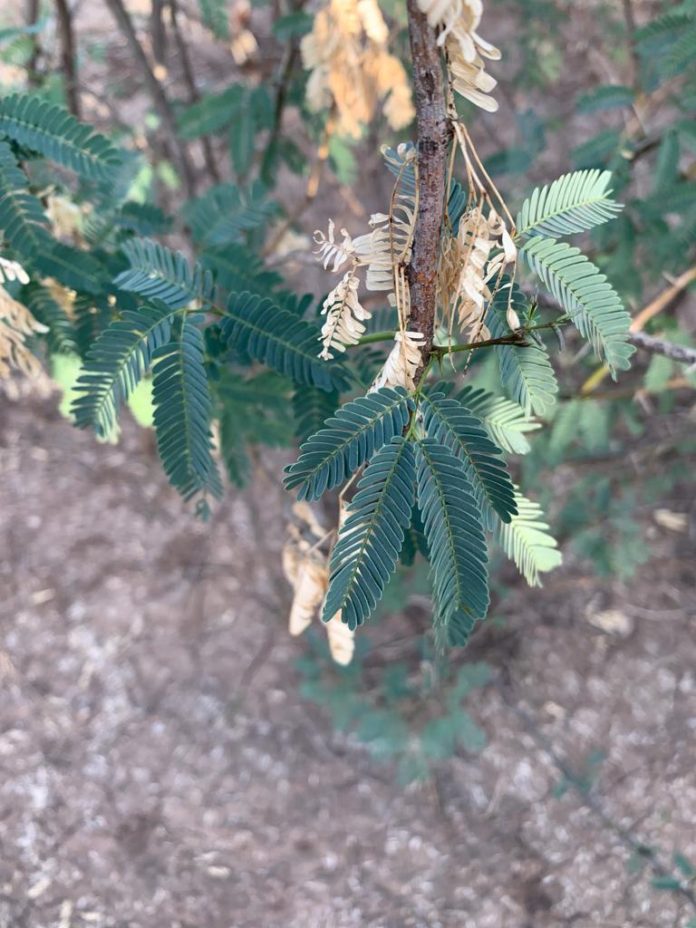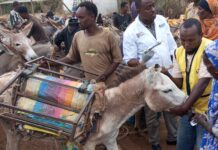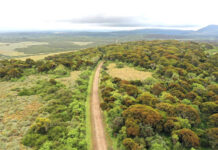By Liz Anyango
Nairobi, Kenya: Prosopis Julifora locally known as Mathenge tree has been declared a threat to national security.
This was announced recently by Environment and Forestry Cabinet Secretary Keriako Tobiko. He pointed out that Mathenge had adversely affected 20 counties in the country and has so far occupied about 2 million hectares of Kenya’s land while it continues to spread at a 15% rate.
According to a report by the Kenya Forest Research Institute (KEFRI), the plant was introduced in Kenya in the 1970s, among other species from South America to rehabilitate the Arid and Semi-Arid Areas (ASALs), due to its resilience, fast growth rate and its many uses for fodder, honey production, shade, windbreak, firewood, building poles among other uses.
According to the Cabinet Secretary, however, the tree aggressively invaded areas of indigenous vegetation and manifested a negative impact on rural landscapes as well as on human and livestock health.

Tobiko was speaking at Eldume Mixed Day Secondary School on Friday in Baringo County as Kenya joined the world in commemorating this year’s World Day to Combat Desertification and Drought, a United Nations day observed every year on June 17. The theme of the day was “rising up from drought together”.
Baringo Governor H.E Stanley Kiptis who also spoke at the same event noted that Mathenge has over time recorded disastrous consequences for humanity and animals in the region.
Kiptis at the same time called on the national government to provide a lasting solution to the matter.
Meanwhile, counties affected by this invasive tree can now breathe a sigh of relief after CS Tobiko stated that the Government of Kenya has released a National Strategy and Action Plan report mainly set to eradicate Mathenge via ‘management by utilization method’.
However, Tobiko pointed out two major ultimatums required for farmers in the affected counties in the report to achieve this eradication initiative.
First, every county government must register Prosopis Charcoal Producers Association within two weeks, and second, land owners whose farms are affected should form a Land Owners Association to ensure when the tree is being eradicated, other species are left unharmed.

In addition, farmers in these regions are being encouraged to reseed the reclaimed areas by planting grass to sustain their livestock.
According to Francis Ole Kipirich, a grass species by the name Cechrus Ciliaries has been introduced in the Salabani area in Baringo County and it has worked as a good replacement plant after the removal of Mathenge.
Speaking separately World Wide Fund for Nature – Kenya Head of Research and Innovation Dr. Yussuf Wato, spoke to the theme of the day saying “If we don’t stop desertification, we will experience increased food insecurity and hunger, water scarcity, and loss of life for people, livestock and wildlife in extreme cases of drought.”
The event which was hosted by National Environment Management Authority (Prosopis Julifora) saw the community members benefit from five 10,000 liter water tanks, 200 beehives, sanitary towels, and water pumps among other things donated by different organizations.














